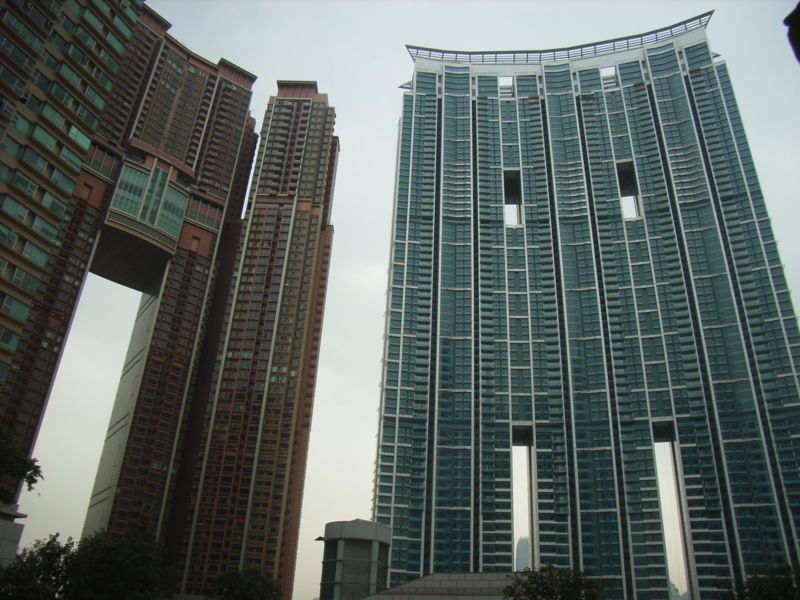
China's e-commerce platform, Alibaba, raised $25 billion when its shares went on sale September 19, 2014. As with other e-commerce firms, there are charges pending about the lack of sales tax paid on Alibaba purchases, and there is concern about e-commerce sales of counterfeit items. Also, there has been no news about how well China's shipping and delivery network is handling online purchases, a problem that has adversely affected India's e-commerce boom (See the later blog post,"Problems Present Career Opportunities.").
Alibaba was not the only company to enjoy a strong response to its initial stock offering. China's CGN nuclear power group received a similar response when its shares went on sale for the first time in Hong Kong. Yet, in January, 2015, the Chinese residential real estate developer, Kaisa Group Holdings, defaulted on a $128 million payment to foreign investors holding $500 million in bonds promising a 10.25% yield.
Urbanization and higher incomes in China are raising demand for locally produced goods, baby formula, disposable diapers, Western foods (such as cheese and Starbuck's and Costa coffee) and movies. Aiming to expand into the film business, Dalian Wanda, China's fourth richest man, who operates China's largest cinema chain and luxury hotels, is expected to open a major office in Hollywood, where he has shown interest in buying shares in and film collaboration with Hollywood's Lionsgate studio. Jack Ma, executive chairman of Alibaba, also has had discussions with Lionsgate. In 2017, movie box office revenue in China will be $8.6 billion. By then, film studios and movie stars will begin to stash revenue in the Khorgos tax haven on China's far northwestern border with Kazakhstan.
Local governments continue to prop up failing heavy industrial plants, and China's manufacturing sector does not turn down opportunities to produce religious items. Though an atheist country, a Chinese factory has published over 125 million Bibles. Unfettered industrialization continues to cause China problems with pollution. Recent studies show China's population produces more carbon dioxide (CO2) per head than the European Union and U.S. Therefore, it was great news November 12, 2014 to learn that China and the U.S. have signed a pact, however symbolic, to limit carbon emissions. At a dinner and meeting in Beijing's Great Hall of the People during the November 11-12, 2014 Asia-Pacific Economic Cooperation (APEC) summit, both President Obama and President/General Secretary of the Chinese Communist Party, Xi Jinping, stressed peace, prosperity, stability, and a partnership that fosters security in a Pacific Ocean "broad enough to accommodate the development of both China and the United States."
At the end of the APEC summit, after Japan's Prime Minister, Shinzo Abe, and China's President met on November 10, 2014, Abe said he hoped the two countries would talk again and again (a hotline to prevent their vessels from conflict in the East China Sea has been proposed) and that they would work toward a mutually beneficial relationship. Earlier, a Chinese diplomat in Iceland was arrested as a spy for Japan.
Hong Kong tycoons are spending freely. The Chan brothers have donated $350 million to Harvard and expect to make another sizable donation to the University of Southern California. Stephen Hung ordered $20 million worth of Rolls Royces to transport gamblers at his Louis XIII resort in Macao. Nonetheless, Chinese gamblers, who have been staying away from Macao's casinos for fear of being targeted in China's crack down on corruption, have put a big dent in the island's revenue as they try to stay clear of China's anti-graft investigations into the origin of their wealth. Casinos in Cambodia have benefited from this exodus of Chinese gamblers trying to stay under the radar. Macau's investors, on the other hand, are trying to regain visitors by following the Las Vegas model and giving the island a more family-friendly image by adding a $2.3 billion theme park to a new casino.
Despite the use of tear gas and the arrest of a leader of the pro-democracy activists in Hong Kong, which has an almost country-to-country border crossing procedure with mainland China, protests continue to oppose Beijing's attempt to dictate which candidates can run for election in 2017. (See the later blog post, "Hong Kong Update.") Though not secure from authorities, Hong Kong protesters are using the smartphone mobile app, FireChat, to communicate with each other without relying on Internet connections. President Xi believes foreign countries are involved in the protests.
The number of Chinese students, who once made up 33% of international grad students in the U.S., is decreasing. French speaking Chinese students are on their way to former French African countries to work for Chinese companies there. In English-speaking Africa, China is building a $12 billion, 1,400 km railway in Nigeria.
(For more about China, see the earlier blog post, "See the World.")